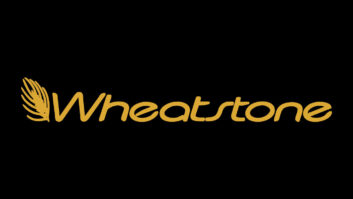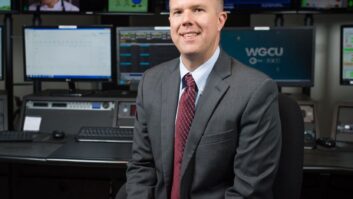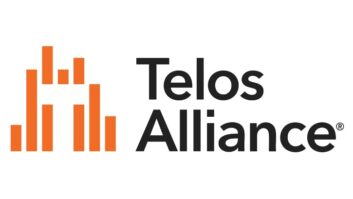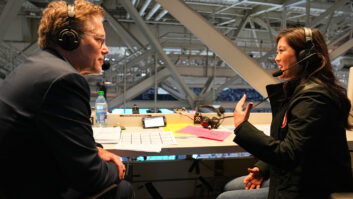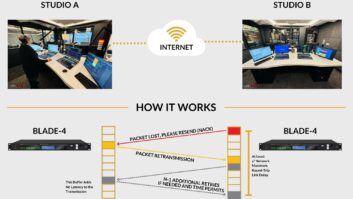
Mike Dosch has definite goals in mind for the four broadcast equipment companies that constitute the Telos family. These include filling out their product lines with more choices and shipping newly developed models more quickly. But, he says, don’t expect massive alterations now that he has taken over as chief executive officer.
“What Steve Church has handed me here is a quite successful company, not a company in trouble,” Dosch told me. He emphasized that he has in fact been playing the CEO role quietly for some months now.
“I don’t have to make a lot of changes and blow things up. I have the pleasure of tweaking and improving. What you’ve liked about Telos, it’s going to continue. What you haven’t liked about Telos, we’re going to be fixing that. It’s been a pretty well-run company.”
We reported in Radio World’s online NewsBytes in January that Church, who founded the company in 1985 in his kitchen in Cleveland, has stepped aside as CEO of the alliance that has grown to include the Telos, Omnia, Axia and Linear Acoustic businesses. Church remains majority owner; the other owners are Dosch, Frank Foti and Tim Carroll. Those four make up the company’s board of directors.

Mike Dosch Church indicated he’ll remain involved, though he acknowledged he is “passing the baton.” (We profiled Church last spring when he received NAB’s Radio Engineering Achievement Award. You can also read his letter about this transition online.)
“I think Steve wants to get back to his roots a little bit more, to get closer to technology again,” Dosch said. “The company is about three times the size it was when I started.” Sales are about $30 million per year, and the firm employs around 100 people; it has headquarters in Cleveland and offices in California as well as Latvia (where Church has a residence), Germany, Ukraine and China.
“You can’t really be a part-time design engineer and ‘manage a little on the side.’ Steve realizes the needs of the business are such that he can’t really spend much time with tech and product ideas. My guess is he’s going to go and invent something.”
Do more, spend less
Telos and its sister companies have had notable successes such as Zephyr codecs, Omnia processors and Axia IP audio lines. I asked Dosch (“Catfish,” to friends and colleagues) where future growth will come from.
For one thing, he thinks Telos can do a better job expanding its offerings within the sectors it serves: phone systems, codecs, radio/TV processors and audio control/routing. “If we’re in a category — codecs for example — it makes sense for us to build not just one codec but a range of products with different feature sets and price points, so that no matter what a customer’s codec needs are, we have something to offer.”
“It’s not something we’ve done a terrific job at in the past. We’ve made products targeted at a certain range of applications or customers, but we could have leveraged our successes more broadly.”
To support this reasoning, he points to the success of the Omnia One. The company has sold 5,000 units of this affordable processor in less than three years. That, he says, shows that “our brand recognition is good, people value what we do; but we haven’t necessarily made products at the lower price points. There’s an opportunity there.
“Also, we know the industry itself has been going through hard times, so [broadcasters] are looking to do more and spend less. The days of the $35,000 on-air console — those are ancient history for most stations. People are asking how they can maximize the money they have. We’re engineering products that are lower-priced; we’re building overseas in some cases; we’re using new technology to provide more features at lower cost; we’re building what clients want.”
Technology evolves, too, offering opportunities. Sales of ISDN codecs may be waning as those services ramp down; but IP codecs are growing, with an expanding choice of how to connect them. More users are doing remotes via the public Internet. Demand for dedicated point-to-point links also will expand as bandwidth grows thanks to technologies like Multi-Protocol Label Switching to maximize speed.
In routing, where Axia now has IP equipment in about 2,000 studios, Dosch sees ample further opportunity even as manufacturing competition in that sector has intensified. Look as well for Telos to introduce products to help customers stream content to computers and mobile devices. This is a niche where Telos once had a presence with the AudioActive encoder line. Dosch says that effort was “way before its time.”
Ethical creativity
Dosch, who turns 49 this year, is a native of California. He studied electrical engineering at San Diego State University and came to Telos in 1999 after having worked at Pacific Research & Engineering, where he started as a design engineer and rose to become chief operating officer.
Pacific was a prestigious brand but the original company fell on difficult times in the 1990s. I asked Dosch why it didn’t end well as a standalone business.
“These are very different companies,” he replied. “PR&E was a company that didn’t have a very good business strategy. No matter how good the execution was, it was destined to failure. Telos is a different animal and in some ways the opposite. It’s always had great strategy and advanced technology; if anything our execution could have been better. It’s far easier to improve execution than to fix faulty strategy.
“PR&E was a niche player in the industry. It was well known among the top 30 broadcast markets; it was hard to go in and not find PR&E consoles there. The hard part was growing the business beyond those top markets. When it tried to introduce lower-cost products, it stumbled; when it tried to introduce higher-tech products, it stumbled. And it had zero international presence, whereas at Telos about half of our business is outside the U.S. Where PR&E was trying to build awareness within markets that didn’t know it, it would be hard to find a radio station in the world that doesn’t have at least one Telos product in it.
“The industry really wants us to build products that do more and cost less. I think Telos will continue to grow.”
Intended changes are meant to help the company improve on its solid base. For instance, Dosch knows Telos has a reputation for introducing new products but not shipping them for a long time.
“Not enough emphasis on the execution can disappoint. One of my goals is to improve our time to market and increase the number of new products we launch every year.”
I asked if he has a particular philosophy as a business executive. He mentioned the importance of being creative, of “thinking out of the box,” an attribute he ascribes to Steve Church. “He can look at any problem and come up with unique solutions.”
Dosch also talked about ethics. “The most successful businesses, the ones that survive long-term, are the ones that treat their employees well, pay their vendors promptly, tell the truth, keep their promises and make sure their customers are thrilled. Ethical treatment of customers, telling the truth, keeping promises, they’re one and the same. Clients will continue to work with our company because of the way they are treated. We’ll make mistakes, but we’ll always fix them.
“This is one of the things that attracted me to Telos,” he concluded, quoting Steve Church: “We’re good corporate citizens.”







